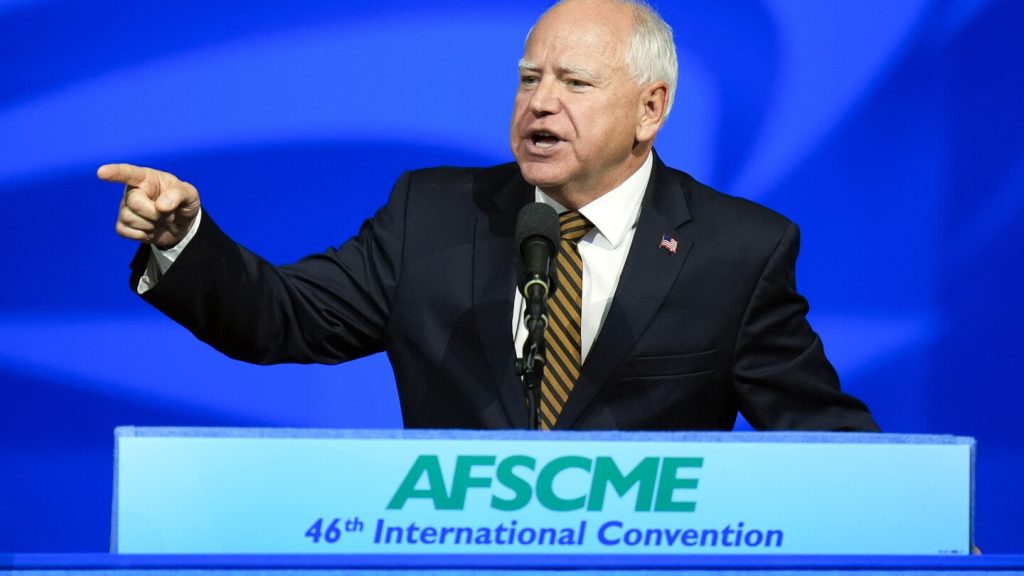Republican lawmakers have accused Minnesota Gov. Tim Walz, the Democratic vice presidential nominee, of having a decadeslong relationship with China, citing his teaching experience in China, his interactions with figures like the Dalai Lama, and his organization of student trips to China. The attacks on Walz reflect the current tense U.S.-China relationship, where any connection with China is viewed with suspicion and used as a political tool. Despite these accusations, experts say that Beijing does not expect U.S. policy to change regardless of who is in the White House.
The scrutiny of Walz’s China connections intensified after he was named as Vice President Kamala Harris’ running mate in the upcoming presidential election. Republicans have raised concerns about his relationship with China, accusing him of being “cozy” with the Chinese Communist Party and suggesting that he may be sympathetic towards China, compromising U.S. interests. However, Walz’s spokesman emphasized the governor’s record of standing up to China’s Communist Party and advocating for human rights and democracy, dismissing the accusations as distractions from the Republican agenda.
Walz’s history with China dates back to when he taught high school in China at the age of 25 and later returned for his honeymoon in 1994. Throughout his career as a Minnesota congressman, he continued to advocate for China’s human rights and met with prominent figures like the Dalai Lama and Hong Kong pro-democracy activist Joshua Wong. While some Republicans have criticized Walz for his connections to China, experts argue that his firsthand experience in the country could actually lend credibility to U.S. criticism of the Chinese government.
In response to the accusations against Walz, Chinese authorities have limited discussions about his time in China, citing the sensitive nature of the China-U.S. relationship and the need to avoid unnecessary troubles. While the Chinese public has shown curiosity about Walz’s experience in China, the government has discouraged any media interviews or discussions on the topic. Despite the scrutiny and allegations against Walz, experts believe that Chinese President Xi Jinping understands that U.S. policy towards China is unlikely to change regardless of the outcome of the upcoming election.
Overall, the accusations against Gov. Tim Walz for his connections to China highlight the current political climate surrounding the U.S.-China relationship. While some Republican lawmakers have criticized Walz for being too closely associated with China, experts argue that his firsthand experience in the country could provide valuable insight into the complexities of the relationship. Despite the scrutiny and allegations, it is unlikely that the U.S. policy towards China will significantly change, regardless of who is in the White House.


